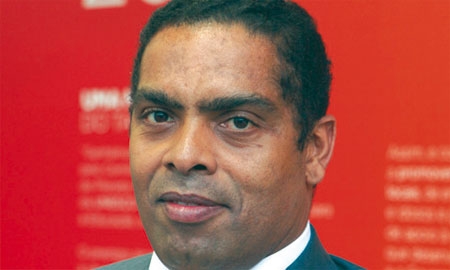
Q. According to the Economist Intelligence Unit, Angola has an expected growth of 7.4% in GDP for the next five years. Do you agree with the good economic scenarios for the Angolan economy?
A. If those are the figures, then they would be considered good in terms of nominal growth. We have to wait for inflation to see if, from the real growth point of view, the economy expanded. It’s important for inflation to slow down for real growth.
As for nominal growth, if these are the figures, and with an inflation rate lower than GDP growth, then obviously the country’s wealth increased.
Q. During the crisis the central bank maintained an expansionary monetary policy and also allowed currency to be sent abroad. In your opinion, what lessons can be drawn from the crisis?
A. I think we had a very restrictive monetary policy in recent years, and it was done well, with an increase in reserves and with a draining of liquidity from the market. Moreover, Angola’s ratio of reserves to GDP is among the highest in the world. Angola probably has a ratio of net international reserves to GDP at anywhere from 20% to 25%, when the average global figure is below 10%. That clearly shows that a country like Angola has the capacity to borrow internationally by developing and diversifying its economy.
Q. Analysts expect Angola’s financial sector to show strong growth this year. Do you agree with that outlook?
A. The growth of any sector, whether financial or otherwise, is possible only with economic growth. If Angola continues growing at positive real growth rates, as has happened in recent years, then obviously the financial sector will continue to grow too.
The way I see it, there are no rich banks nor a strong financial sector with poor companies and citizens, it doesn’t happen that way. You also don’t get strong companies and a growing economy with weak banks. There’s a link between the growth of economic activity and the growth of financial institutions.
Q. The Angola Stock Exchange will be opened in 2011. What is your outlook regarding its competitiveness in Africa and its benefits for Angolan
companies?
A. It will take a few years for the capital market to mature. The exchanges in South Africa and Egypt, for example, have been around for some years. It won’t become a strong market overnight. We do need to recognize that it’s an important step and a financing alternative to bank loans.
0 COMMENTS